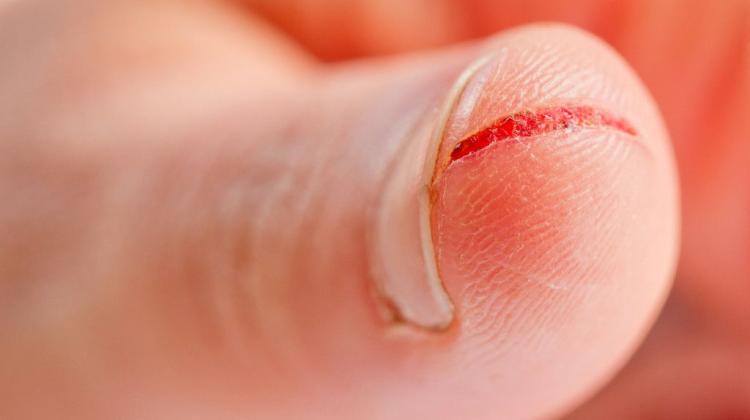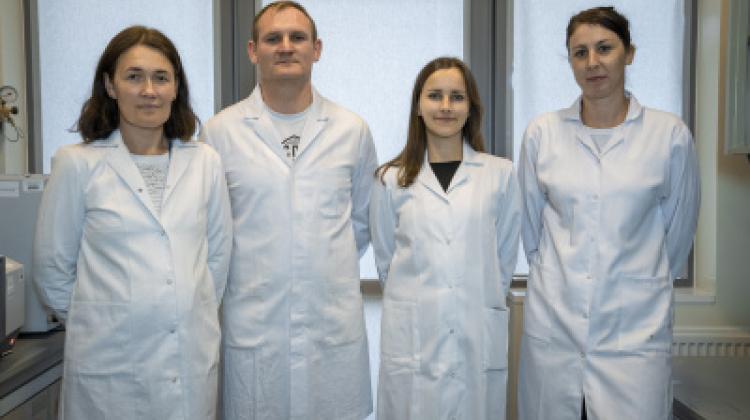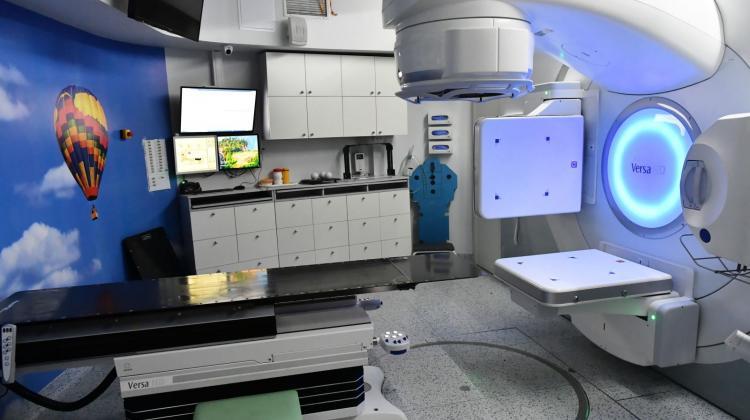Researchers are searching for a drug that can help heal wounds
 Photo: Fotolia
Photo: Fotolia
Four academic institutions and two biotech companies (most of them from Gdańsk) are working together on a drug that can help in the healing of wounds. The subject of their research are newly discovered bioactive substances that will be applied onto the wounds in the form of hydrogels.
The project has received PLN 17 million government grant and will continue for three years.
The project is carried out by research teams from the University of Gdańsk, Gdańsk University of Technology, Medical University of Gdańsk and Nencki Institute of Experimental Biology in Warsaw, and two biotech companies: MedVentures from Poznań and Pro-Science from Gdynia.
A total of eight research teams are involved in the project; each team has specific tasks. Chemists and molecular biotechnologists synthesize new compounds for research, biologists study the effects of these compounds, and molecular biologists and biotechnologists - mechanisms and results of their action.
The head of one of the teams, Dr. Paweł Sachadyn from the Department of Molecular Biotechnology and Microbiology, University of Gdańsk, told PAP that the majority of previously conducted studies aimed at finding a way to heal wounds faster and more effectively, focused on stem cells transplantation (patient’s own or someone else\'s cells). "We will try to stimulate regeneration of the body with the help of chemicals" - said Sachadyn.
Scientists do not want to reveal too many details regarding the chemicals that they will investigate. Project coordinator - Head of the Department of Biomedical Chemistry at the University of Gdańsk, Dr. Sylwia Rodziewicz-Motowidło told PAP that they were synthetic chemical compounds, "analogous to biological macromolecules, but strongly enhanced properties that stimulate the natural wound healing processes". "They will include chemically modified bioactive substances, chemicals that do not occur in nature and have not been studied yet" - she explained.
She added that the choice of these, and not other bioactive substances was dictated by preliminary studies, which yielded promising results. "Now we extend the studies with the hope that at the end of the project we will have a prototype drug, a bioactive compound hydrogel with regenerative properties" - Rodziewicz-Motowidło told PAP.
In addition to the team led by Rodziewicz-Motowidło, another UG team is working on the development of new compounds to be tested in the project: the Department of Molecular Biotechnology team led by Dr. Piotr Skowron. This team uses advanced genetic engineering technology to transform microbial cells into miniature manufacturing plants producing not naturally occurring proteinaceous substances, previously designed using computer programs,.
Laboratory tests in the project are coordinated by Dr. Michał Pikuła from the Department of Clinical Immunology and Transplantation, Medical University of Gdańsk. He emphasized that the main target of the activity of the new compounds will be the stem cells naturally occurring in the body of the patient. "These cells determine the repair capability of tissues and organs" - said Pikuła and added that this type of treatment (targeting chemicals at selected cells) could become the basis of regenerative medicine in the future.
The research into the action of new substances on living organisms, will be led by Dr. Artur Czupryn from the Nencki Institute of Experimental Biology. He will test the compounds directly on the skin and nervous system.
To complete this study, the effects of the test substances on the genome of the cells stimulated to regenerate will be evaluated. This aspect of the project is coordinated by Dr. Arkadiusz Piotrowski from the Medical University of Gdańsk.
The project is carried out by a specially established consortium Regennova. It received funding in the competition "Prevention and treatment of diseases of civilization" - STRATEGMED, announced by the National Centre for Research and Development.
PAP - Science and Scholarship in Poland
aks/ jbr/ mrt/
tr. RL
Przed dodaniem komentarza prosimy o zapoznanie z Regulaminem forum serwisu Nauka w Polsce.


















